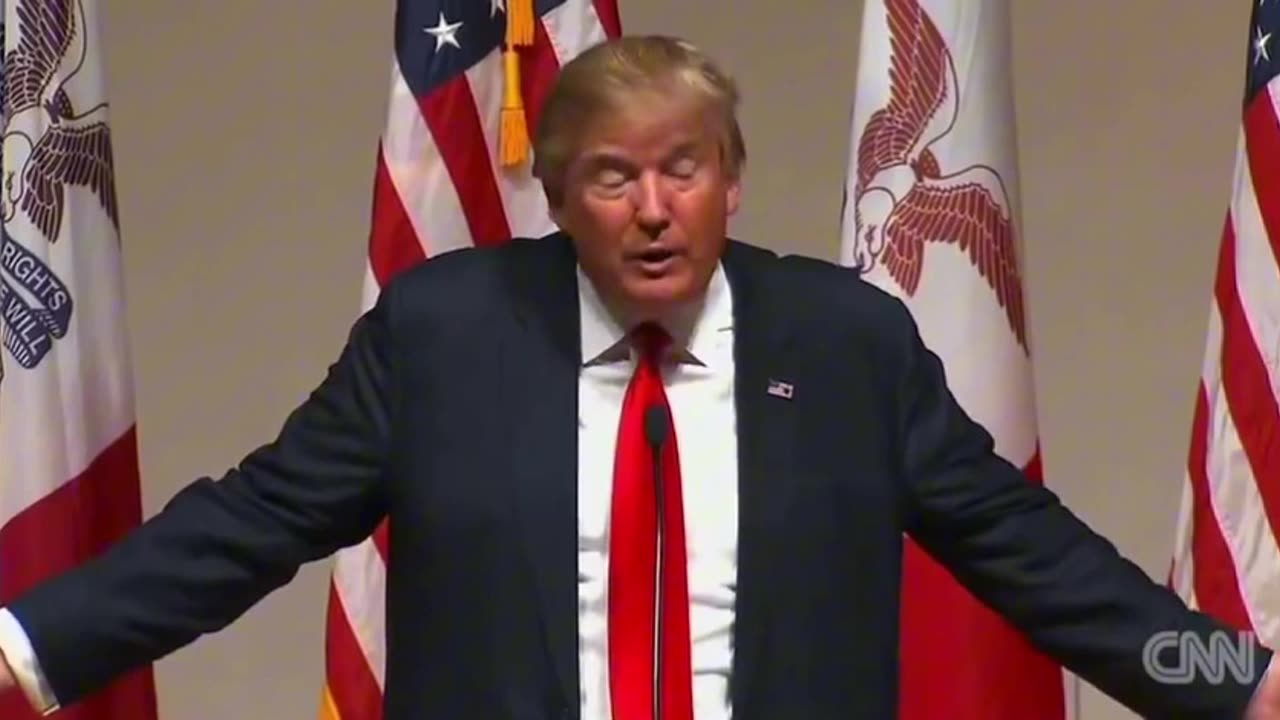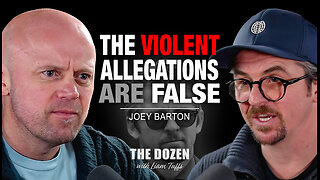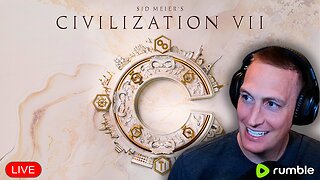Premium Only Content

Decoding Unwavering Loyalty: Advanced Insights into Donald Trump’s Political Influence
Abstract
Donald Trump’s assertion that he could “stand in the middle of Fifth Avenue and shoot somebody and I wouldn’t lose any voters” is more than hyperbole; it encapsulates a complex political phenomenon characterized by an unprecedented level of personal loyalty among his supporters. This article delves deep into the psychological, sociocultural, and technological factors that contribute to this unwavering allegiance. By exploring charismatic leadership, identity politics, media dynamics, and the implications for democratic institutions, we aim to provide advanced insights into how such loyalty shapes and challenges contemporary politics.
Introduction
The political landscape of the 21st century has been dramatically altered by the rise of populist leaders who command deep personal loyalty from their followers. Donald Trump’s provocative statement about his supporters’ unwavering loyalty serves as a focal point for examining this shift. This phenomenon raises critical questions about the nature of political allegiance, the role of charismatic authority, and the impact on democratic governance.
1. Charismatic Leadership and the Cult of Personality
1.1. The Essence of Charisma
Max Weber’s concept of charismatic authority provides a framework for understanding Trump’s appeal. Charismatic leaders possess extraordinary personal qualities that inspire devotion. Trump’s direct communication style, media savvy, and projection of confidence resonate with many who feel disillusioned with traditional politics.
1.2. Emotional Connection and Identity
Trump’s rhetoric often taps into the emotions of his base, addressing fears, aspirations, and a sense of disenfranchisement. This emotional connection fosters a cult of personality, where loyalty is rooted in personal identification with the leader rather than policy alignment.
1.3. The Role of Narrative
By crafting a compelling narrative of “us versus them,” Trump positions himself as a champion against perceived threats, whether they be political elites, immigrants, or global institutions. This narrative reinforces group cohesion and loyalty.
2. Psychological Underpinnings of Unwavering Support
2.1. Social Identity Theory
According to social identity theory, individuals derive part of their identity from the social groups to which they belong. Aligning with Trump’s movement provides a sense of belonging and purpose.
2.2. Cognitive Dissonance and Rationalization
Supporters may experience cognitive dissonance when confronted with information that contradicts their beliefs about Trump. To resolve this discomfort, they might rationalize or dismiss conflicting evidence, reinforcing their loyalty.
2.3. The Backfire Effect
The backfire effect occurs when individuals hold their beliefs more strongly after being presented with contradictory facts. In highly polarized environments, attempts to challenge Trump’s statements may inadvertently strengthen his supporters’ commitment.
3. Sociocultural Factors Influencing Loyalty
3.1. Economic Anxiety and Populism
Globalization and technological advancements have led to economic shifts that leave some populations feeling marginalized. Trump’s promises to restore jobs and renegotiate trade deals appeal to those experiencing economic uncertainty.
3.2. Cultural Backlash
Rapid social changes regarding immigration, gender roles, and multiculturalism can trigger a cultural backlash. Trump’s emphasis on traditional values and national identity resonates with those who feel their way of life is under threat.
3.3. Mistrust of Institutions
Erosion of trust in media, government, and other institutions creates a vacuum that charismatic leaders can fill. Trump’s criticism of “fake news” and the “deep state” amplifies this mistrust and positions him as a truth-teller.
4. Media Dynamics and the Information Ecosystem
4.1. Echo Chambers and Filter Bubbles
The fragmentation of media has led to echo chambers, where individuals are exposed primarily to information that aligns with their beliefs. Social media algorithms reinforce these bubbles, limiting exposure to diverse perspectives.
4.2. The Power of Direct Communication
Trump’s use of platforms like Twitter allows him to bypass traditional media and communicate directly with supporters. This unmediated communication strengthens the personal connection and control over the narrative.
4.3. Misinformation and Disinformation
The proliferation of misinformation can distort perceptions of reality. Conspiracy theories and false narratives may solidify support by creating alternative explanations for events that challenge the leader’s image.
5. Implications for Democratic Institutions
5.1. Erosion of Checks and Balances
Unquestioning loyalty can weaken the mechanisms designed to hold leaders accountable. If supporters dismiss legitimate criticism as biased or unfounded, it undermines the effectiveness of oversight institutions.
5.2. Polarization and Governance
Deep divisions hinder bipartisan cooperation and effective governance. Loyalty to a leader over party or country can lead to gridlock and impede policy-making processes.
5.3. Threats to Rule of Law
When loyalty supersedes legal principles, there’s a risk of normalizing actions that violate democratic norms. This can set precedents that erode civil liberties and institutional integrity.
6. Advanced Multidimensional Perspectives
6.1. Historical Parallels and Divergences
Comparing Trump’s phenomenon to historical figures like Julius Caesar or more contemporary leaders offers insights into the dynamics of personal loyalty. However, modern technology and media create unique contexts that differentiate today’s landscape.
6.2. The Role of Collective Consciousness
From a sociopsychological standpoint, the collective consciousness of a group shapes and is shaped by its leader. Trump’s ability to tap into the collective psyche amplifies his influence.
6.3. The Intersection of Technology and Psychology
Advancements in data analytics and psychographics enable targeted messaging that reinforces loyalty. Understanding how technology manipulates psychological triggers is crucial for grasping the full scope of this phenomenon.
7. Strategies for Mitigating the Risks
7.1. Promoting Media Literacy and Critical Thinking
Education systems and public initiatives should focus on enhancing critical thinking skills and media literacy to empower individuals to evaluate information objectively.
7.2. Strengthening Institutional Resilience
Reinforcing the independence of judicial systems, electoral processes, and free press is vital to maintaining checks and balances.
7.3. Encouraging Inclusive Dialogue
Creating platforms for open, respectful dialogue across ideological divides can reduce polarization and foster mutual understanding.
Conclusion
Donald Trump’s statement about his supporters’ unwavering loyalty encapsulates a complex interplay of psychological, sociocultural, and technological factors. The depth of this loyalty challenges traditional notions of political accountability and has profound implications for democratic institutions. By examining these dynamics through advanced, multidimensional lenses, we gain a deeper understanding of the forces at play. Addressing the risks associated with such phenomena requires a holistic approach that combines education, institutional reform, and the promotion of open dialogue.
References
1. Weber, M. (1947). The Theory of Social and Economic Organization. Free Press.
2. Tajfel, H., & Turner, J. C. (1979). An integrative theory of intergroup conflict. The Social Psychology of Intergroup Relations, 33–47.
3. Sunstein, C. R. (2009). Going to Extremes: How Like Minds Unite and Divide. Oxford University Press.
4. Hochschild, A. R. (2016). Strangers in Their Own Land: Anger and Mourning on the American Right. The New Press.
5. Pariser, E. (2011). The Filter Bubble: What the Internet Is Hiding from You. Penguin Press.
6. Norris, P., & Inglehart, R. (2019). Cultural Backlash: Trump, Brexit, and Authoritarian Populism. Cambridge University Press.
7. Kahneman, D. (2011). Thinking, Fast and Slow. Farrar, Straus and Giroux.
Final Thoughts
The phenomenon of unwavering political loyalty, as exemplified by Trump’s statement, is a testament to the evolving nature of political engagement in the modern era. It underscores the need to critically assess how charismatic leadership, identity politics, media fragmentation, and psychological factors converge to shape the political landscape. Recognizing and understanding these multidimensional dynamics is essential for fostering a healthy, functioning democracy that values accountability, inclusivity, and informed citizenry.
-
 1:40
1:40
FragmentsOfTruth
19 hours agoDenied Life Insurance Over COVID Vaccine? The Shocking Legal Loophole
85 -
 12:03
12:03
Space Ice
19 hours agoSteven Seagal's China Salesman - Mike Tyson Knocks Him Out - Worst Movie Ever
54K19 -
 11:37
11:37
Degenerate Jay
18 hours ago $19.35 earnedJames Bond Needs Quality Over Quantity From Amazon
120K13 -
 15:23
15:23
Misha Petrov
19 hours agoTrad Wives & Girl Bosses Go to WAR!
87.2K52 -
 2:03:11
2:03:11
TheDozenPodcast
17 hours agoFootball villain fighting the state: Joey Barton
66.4K1 -
 13:18:50
13:18:50
Scottish Viking Gaming
20 hours ago💚Rumble :|: Sunday Funday :|: Smash the Blerps and Vape the Terpes
101K8 -
 1:45:00
1:45:00
RG_GerkClan
21 hours ago🔴LIVE Sunday Special - It's Time for World Domination - Civilization VII - Gerk Clan
92.2K28 -
 LIVE
LIVE
Major League Fishing
4 days agoLIVE Tackle Warehouse Invitationals, Stop 1, Day 3
99 watching -
 23:34
23:34
marcushouse
22 hours ago $16.27 earnedBREAKING: Starship Launch IMMINENT – But What’s This SURPRISE Flight 9 Plan?! 🚀🔥
126K18 -
 8:43
8:43
Film Threat
1 day agoTHE MONKEY | Film Threat Reviews
112K4